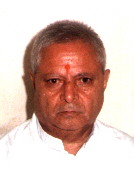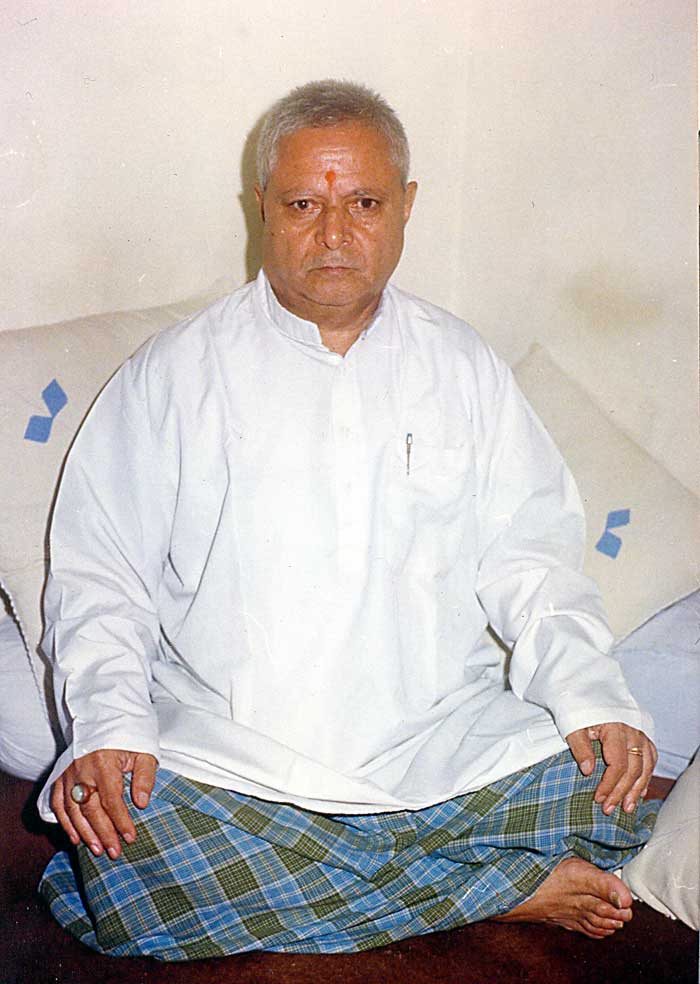|
Pandit Dayal -
the
Secret Saint
|
 |
'No show business!'
These were the guiding words of Pandit Dayal, whom I refer to as the
Secret Saint. He epitomizes the reality that many of the world's most
profound souls shun the limelight and the acclaim of the masses.
They lead remarkably ordinary lives and show little inclination towards
formally instructing others. Yet, their quiet passage through life subtly
enhances the well-being of humanity. Just as fractal mathematics illustrates
how a butterfly's wings might alter weather patterns at the North Pole,
these unassuming human 'butterflies' stir a gentle breeze of peace that
cools our hearts.
Living under the same roof
as Nirmala Pandit in Juhu Scheme, Pandit Dayal was the seldom-noticed
brother of Nirmala's husband. He silently accompanied her to satsangs
throughout Mumbai, blending into the background like a flower woven into a
tapestry, yet emanating immense love and peace with almost no recognition.
'Unknown are the movements of fish in the water', as Neem Karoli Baba
puts it.
|
The former Czech president and philosopher Václav Havel made a crucial
observation: political dictatorships often start with seemingly trivial
compromises in our daily actions. Conversely, he suggested, profound changes
can also originate from the smallest of gestures. This concept was vividly
illustrated during my stay at Nirmala Pandit's place in Mumbai, where I
observed that beings in love can transform the entire world simply through
the way they sip a cup of chai.
The Invisible Thread
Pandit Dayal once shared a captivating old
Indian folk tale during a rare moment of storytelling in his modest room at
Mataji's house in Juhu Scheme, Mumbay. He was usually a man of few words,
making this occasion particularly special.
"Once upon a time in ancient India," he began, "a king unjustly imprisoned
his Prime Minister in a high tower. The Minister's wife, both faithful and
clever, devised a plan to free him. She brought a beetle to the tower, tying
a long, nearly invisible thread to one of its legs. To this thread, she
attached a silk thread, and to the silk, a rope.
She then smeared honey on the beetle’s antennae and placed it on the tower’s
outer wall. Enticed by the scent, the beetle climbed upward. Upon reaching
the top, the imprisoned Minister found the beetle and with it, the thread.
He used this thread to pull up the silk, and then the rope, which eventually
enabled his escape."
Pandit Dayal paused, looking intently at me, his audience. "Right now, like
the Minister, you hold an almost invisible thread in your hand. This thread
is your connection to your own inner galactic paradise. It will guide you
back to your inner space, provided you do not discard it in pursuit of
grander spiritual experiences.
I could sense Pandit Dayal smiling at my attempts to become something
more, as he sat on his bed. His mere presence was profound, and the way he
sat—imagine the depth of his state!
Each time you consciously breathe in gratitude, you draw nearer to the
secret saint within yourself. This simple act thickens the thread of your
connection, eventually turning it into a rope strong enough to lift you from
the prison of your ego.
I couldn't help but draw a parallel between the minister's wife and Nirmala
Pandit's ceaseless, overflowing love. In India, the concept of Deus ex
Machina is personified by the Mother Goddess. Her compassion serves as a
metaphor for the divine intervention that liberates the self from its
confining tower. And in this story Pandit Dayal was the beetle.

|




















